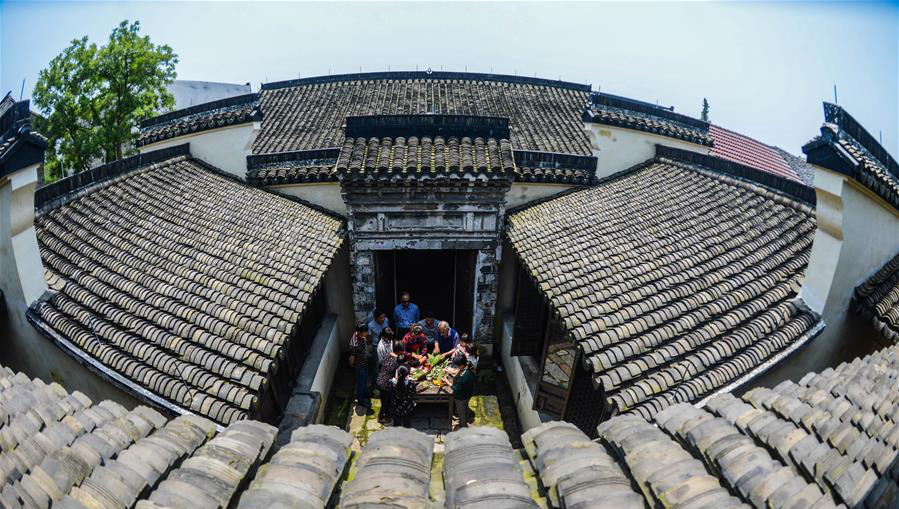Traditional national holiday has ancient origins, deep significance

Villagers in Huzhou, Zhejiang Province, get together to make zongzi to celebrate the Dragon Boat Festival.
The Duanwu Festival, also known as the Dragon Boat Festival, is one of the most significant traditional festivals in China. The Duanwu Festival occurs on the fifth day of the fifth month of the Chinese lunar calendar, so it is also called the Double Fifth Festival. The Duanwu Festival is one of the four traditional festivals for the Han Chinese ethnic group, along with the Spring Festival, Qingming Festival and Mid-Autumn Festival. In 2009, the festival was selected to be among the Representative List of Intangible Cultural Heritage of Humanity by UNESCO.
The festival originated with the dragon boat races ancient tribes held as a form of totem worship in the middle and lower reaches of the Yangtze River and to its south. There are many folk stories about the origin and customs of the Duanwu Festival, including that it was a day for pursuing good fortune and avoiding disaster, a “sweeping day” that can help people’s health, a day of athletic competition and coordinating yin and yang, and a day of dragons. But the most popular view is that the festival is a day of remembrance.
Qu Yuan was a patriotic poet and minister of the state of Chu during the Warring States period. He was falsely accused of treason and drowned himself in the Miluo River. Local people admired Qu and raced out in boats to save him but it was too late to save Qu’s life. They dropped sticky rice pudding, the origin of zongzi, into the river to protect Qu’s body from being eaten by fish. In order to commemorate this patriot, people held dragon boat races and made zongzi on every fifth day of the fifth month.
Despite the popularity of the Qu Yuan origin story, some places commemorate Wu Zixu, a loyal advisor who died for the state of Wu, and Cao E, a young girl who jumped into the river to save her father but finally died, on the Duanwu Festival. Since the beginning of the War of Resistance against Japanese Aggression, Chinese progressive intellectuals have held poetry reading to commemorate Qu. Along with dragon boat races, holding traditional activities to cherish the memory of Qu is said to be the best way to respect Chinese traditions on this day.
In regard to the customs of the Duanwu Festival, there are tremendous differences between South and North China. People in the South use bamboo leaves to make zongzi, but people in the North prefer reeds. Besides eating zongzi during the festival, people like to drink realgar wine to protect themselves from illness in many places. And people from Changde and Zhangjiajie, Hunan Province, also eat ciba, a glutinous rice cake while people living on the Jianghan Plain, Hubei Province, like to eat eel on the festival. But people in the North China prefer to eat tea eggs and the five “poisonous” cakes which have the outlines of scorpions, vipers, centipedes, house lizards and toads printed on the top of cakes, to expel evil spirits.
These customs have evolved with changes in people’s living and thinking styles. From driving out evils, patriotic worship and eating zongzi or racing dragon boats, the essence of the festival reflects people’s wisdom and desire to achieve harmony with nature and society.
Liu Delong is associate dean of the Institute of Cultural Heritage at Shandong University.
